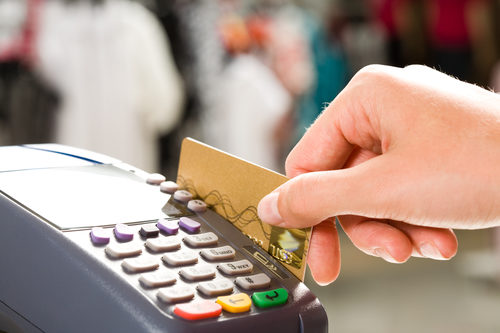Credit card spending is a very delicate topic. We all know that it is what brought about the downfall of several households. It was not like they were drowning in debt. A lot of them could manage their debt payments just fine. Many consumers were carrying a balance over to the next month – but it was fine because they had jobs to help them pay it off. However, when the Great Recession happened, their seemingly stable financial condition came tumbling down. Suddenly, they had no more money to pay off what they owe.
This is the reason why a lot people thought about giving up their cards entirely. They did not want to carry around a temptation to spend more than what they can afford to pay off. After all, that is what credit is all about – spending money that you do not really have. If you cannot control yourself, you will end up ruining your finances.
Although we want to give up our credit cards entirely, it can be useful sometimes. Thanks to the importance of credit reports, we need to constantly use credit in order to have a high credit score. We have the option to borrow personal loans but using credit cards are a lot easier. You can simply use your card for small purchases and you will be considered a credit user already. If you are wise enough to know how to manage your credit wisely, we can continue to use this without being in danger of ruining our personal finances even if the economy crashes again.
7 purchases that you should never use credit to pay for
While it is possible for you to use your credit card and still be debt-free, there are certain rules that you need to follow to avoid certain pitfalls. There is still danger when it comes to using these cards. A job loss can render you unable to pay off your balance. Once you carry over a balance to the next month, your debt can grow significantly. These cards are notorious for their high interest rates. That $100 can quickly grow if you are not cautious of how you use credit.
Being a smart credit card user is not really complicated. However, it does entail a couple of habits. Paying your debts regularly, controlling how much you will charge – these are important habits that you need to develop. Not only that, you need to be very careful about what you will use your card for.
Although you can use your card for practically any purchase, that does not mean you should do it. Part of being smart about using your credit card is to know the purchases that can damage your finances. Here are 7 purchases that you should think twice before using your cards.
- Utility and other bills at home. First of all, these are basic necessities that you should try to pay off in cash. If you cannot pay it in cash and you have to rely on your card, that says a lot about your current financial position. The only time that this is okay is when you know that you can pay the balance in full once your card statement comes in at the end of the month. But if you are paying your utility bills through your credit card because you do not have the cash, then that is a different story. You need to sit down and analyze your finances because you cannot continue using credit to pay for your basic necessities. That can quickly put your finances in a downward spiral.
- Car – or any item that depreciates in value. We mentioned that credit cards are notorious for their high interest rates. If you use it to buy items that depreciates, then you will end up paying much more than the value of the item. For instance, buying a car through your card. Once your drive from the dealer’s shop, the vehicle already lost its value because it is now owned. If you cannot pay the total car amount in full at the end of the month, this will cost you a lot more in the long run.
- Retail therapy. According to an article published on PsychologyToday.com, more than 50% of Americans have admitted to using retail therapy at one point. 62% of shoppers admitted that they bought something to help them feel better. This is a big no-no. In fact, people are advised against making financial decisions when they are on an emotional high. This is true for both positive and negative emotions. It is believed that we are not fully logical when we are feeling very high emotions. You can easily make a big purchase and you would not be able to think about the real repercussions of that decision.
- Loans. Unless your credit card has a lower interest rate than your loan, then this will never be okay. Or if you are using balance transfer (wherein you are allowed a limited period with 0% interest), it can also be acceptable but even then, you still need to be very careful. One wrong move and you could end up owing more than when you started. It is better to pay your loans in cash – never your credit card.
- Medical bills. Some people use credit cards for emergencies. This is something that they think will make them feel secure. Well it will not keep you secure. Once you use a card to pay your medical debt, that will put you into trouble in the long run. According to an article published on Credit, the FICO score model will treat medical debt differently. At least, the new model will. Simply put, this will keep your medical bills from ruining your credit score as fast as credit cards would. If you will charge your medical expenses on your card, you will lose this benefit.
- Sale items you do not need. First of all, the interest rate on your credit card will render the discount that you got practically useless. Also, if you do not need the item, you will end up wasting more money in the process. Even if you got that item with an 80% discount, that does not matter. The reality is, if you do not need the item, you just wasted the 20% that you paid.
- Unsecured online products. This is more because of the risk that you will be putting your personal and credit information. A lot of people have had their information stolen online. If you are not careful when you make online purchases, you could become a victim of identity theft. You can lose a lot more. Your current credit card can be used and the thieves can open more accounts under your name. That can be catastrophic to your financial records.
If you intend to use your credit card, that is okay. Just make sure that you will make smart choices about how you will use it.
Best practices when using your card to make purchases
The bottom line is, you need to learn proper credit management if you really want to keep using your cards. There are instances when it is okay to borrow money – but you need to know how to handle these credit accounts so it will never ruin your finances. Here are some tips that you can use.
- Borrow only what you can pay in full at the end of the month. This is how you can use credit without paying interest. You satisfy the requirements for a high credit score and you stay out of debt. This is the best way to be smart about your finances.
- Make sure you set a payment plan in case you will pay in installment. In the event that you cannot pay your dues in full, make sure you have a payment plan in mind. Rearrange your budget so you have the funds to pay towards your card. This is usually applicable when you make expensive purchases.
- Negotiate your interest rate. You should know that you have every right to negotiate your interest rate – especially if you were given an offer by another credit card company that has a lower rate. Simply call your existing creditor can ask them to lower your rate – or else you will transfer to the company offering you a better rate. This negotiation is also true if the creditor tells you that they will be raising your interest rate. Take note that you have every right to refuse this increase.
- Know your right as a consumer. There are crucial information that will help you save a lot of money on your credit account. Take for instance your right to refuse any increase in your interest rate. If you refuse this, they will either let you stick to your old plan, force you to agree or allow you to close your account and agree to a payment term that you can afford. There are other laws that you need to be aware of. These laws, according to an article from CreditCards.com include the Truth in Lending Act, Fair Credit Billing Act, Fair Credit Reporting Act, Fair Debt Collection Practices Act and Credit CARD Act. Get to know these laws so you know your rights as a credit card holder.
Here is a video featuring an expert from Wells Fargo who will discuss how you can use credit cards to your advantage.





